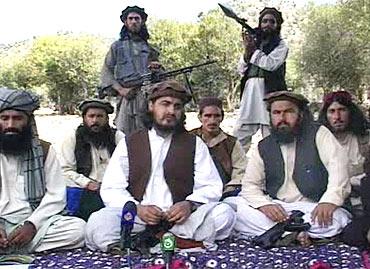
Rediff.com brings you a series of leaked Wiki cables, which point towards some startling revelations. Read on...
On December 15-16, 2009, Treasury Department Acting Assistant Secretary of the Office of Intelligence and Analysis Howard Mendelsohn, along with GRPO officers and Treasury analysts, met with senior officials from the United Arab Emirates State Security Department and Dubai's General Department of State Security to discuss suspected Taliban-related financial activity in the UAE.
He stated that the Taliban receives significant money from narcotics trafficking and extortion, but noted that the US believes that the group also receives significant funds from the Gulf, particularly from donors in Saudi Arabia and the UAE.
He further stated that the Taliban and Haqqani Network are believed to earn money from UAE-based business interests. Security officials from both SSD and GDSS agreed that the Taliban and Haqqani Network are serious threats.
Officials from SSD added that Iran supports the Taliban with money and weapons, helps the Taliban smuggle drugs, and facilitates the movement of Taliban and Al Qaida members. SSD officials stated that Iran's Iran's Revolutionary Guards Corps and navy are involved with these activities.
GDSS officials noted Iran's support to Taliban in Pakistan, adding that GDSS believes that India also has supported Pakistani Taliban and Pashtun separatists.
...
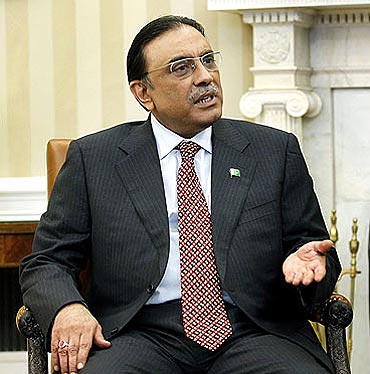
In an effort to showcase the role of Afghanistan's neighbors in advance of the January 28 London Conference on Afghanistan, Turkey's President Gul hosted a Summit on Afghanistan and its contiguous neighbors on January 26, 2010.
Participants included Afghan President Karzai, Pakistan President Asif Ali Zardari, Iranian First Vice President Mohammed Reza Rahimi, United Kingdom Foreign Secretary David Miliband, and Chinese Foreign Minister Yang Jiechi, as well foreign ministers from Tajikistan and Kyrgyzstan.
Uzbekistan and Turkmenistan did not attend, while Turkey agreed to exclude India at the request of Pakistan, in part because the genesis for the conference was a Turkey-Pakistan-Afghanistan Trilateral Summit in 2009.
...
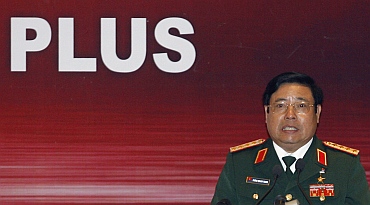
During a January 21-23 2010 Vietnam visit, Deputy Assistant Secretary of Defense for South and Southeast Asia Robert Scher met with officials from the Ministry of Defence and the Ministry of Foreign Affairs to discuss a variety of bilateral and regional issues.
The centrality of ASEAN in the region and the importance of US involvement in this and other regional institutions were emphasised by both ministries.
While Director of Plans and Policy at the Office of the Permanent Secretary of MOD General Vibbhavat Rajatanun cautioned that the Plus 8 scenario was not certain to be adopted, as various ASEAN nations were concerned about some of the potential members.
For example, Burma was disturbed by Japan's potential membership following Tokyo's recent criticism of the GOB's treatment of ASSK. In addition, Vietnam was hesitant in including India.
...
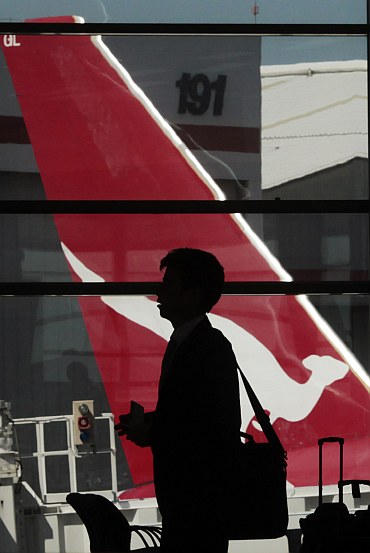
Embassy Canberra recommends 11 individuals be placed on the NO FLY list and 12 individuals be placed on the SELECTEE list.
The 23 individuals are Australian citizens, or are Australia-based, and are of security interest because they have either an historical or current association with Yemeni cleric Anwar Al Aulaqi, or are based in Yemen or the surrounding region and may come into contact with Al Aulaqi.
The Australian Security Intelligence Organisation provided the names and the Embassy Visas Viper committee met on 19 January 2010 to discuss the names.
Post ran CLASS checks for all 23 individuals and checked their current US visa status in the Consular Consolidated Database. These are the details of the Indian national:
Qazi, Mohammed
Citizenship: India
Sex: M
DOB: 24 April 1974
Passport: A0207466, F4021018 (India)
Result of CLASS Check: DPT 00
US Visa: Local check of Consolidated Database indicates no record. Recipients are requested to recheck CCD to verify.
Embassy recommendation: SELECTEE LIST due to his demonstrated connections with Al Aulaqi.
This recommendation is based also on his current location being Australia, where Australian authorities can monitor his whereabouts and travel plans.
...
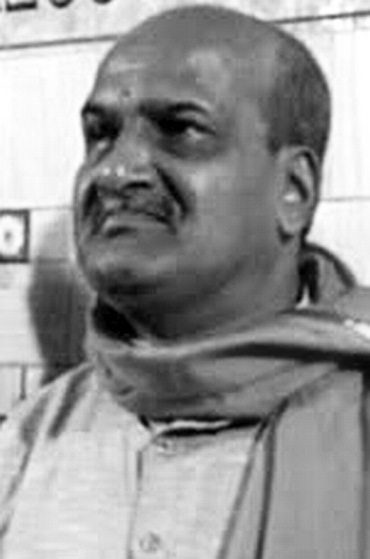
Several acts of vandalism against Christian sites in Karnataka over the past several days may be the work of the Hindu extremist Sri Ram Sene, the same outfit responsible for multiple violent incidents in the state over the past 18 months.
The group reportedly sent a letter to a top local bureaucrat threatening action against Christian interests in India in protest against attacks against Indians in Australia.
The response from the government of Karnataka has been positive and led by the chief minister, who issued prompt and sharp rebukes against the perpetrators.
...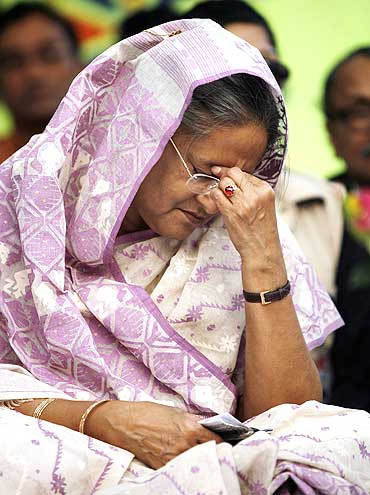
Bangladeshi Prime Minister Sheikh Hasina Wazed arrived in New Delhi January 10 to begin her most important foreign visit since assuming office in early 2009.
Recognising the inertia within Bangladesh's bureaucracy, the prime minister entrusted her own office with preparations for the visit, and her advisors told us they expect the results to 'transform' Indo-Bangladesh relations.
Dr Gowher Rizvi, Hasina's foreign affairs advisor confessed that the Indians had initially been skeptical of what the visit could achieve, he told the Ambassador the stage had been set for agreements to 'transform' Indo-Bangladesh relations.
Rizvi told the Ambassador he thought the PM was making a mistake by delaying her return to Dhaka until January 13, following a one-day pilgrimage to Ajmer. Rizvi confided that he had 'sabotaged' the PM's plan to prolong her stay in India further by adding an additional stop in Kolkata.
Rizvi had argued in favor of an immediate return to Dhaka following the conclusion of bilateral talks on the 12th.
Rizvi shared his fear, however, that this 24-hour delay would allow the media and the opposition to put their spin on the visit before the PM had a chance to address the nation.